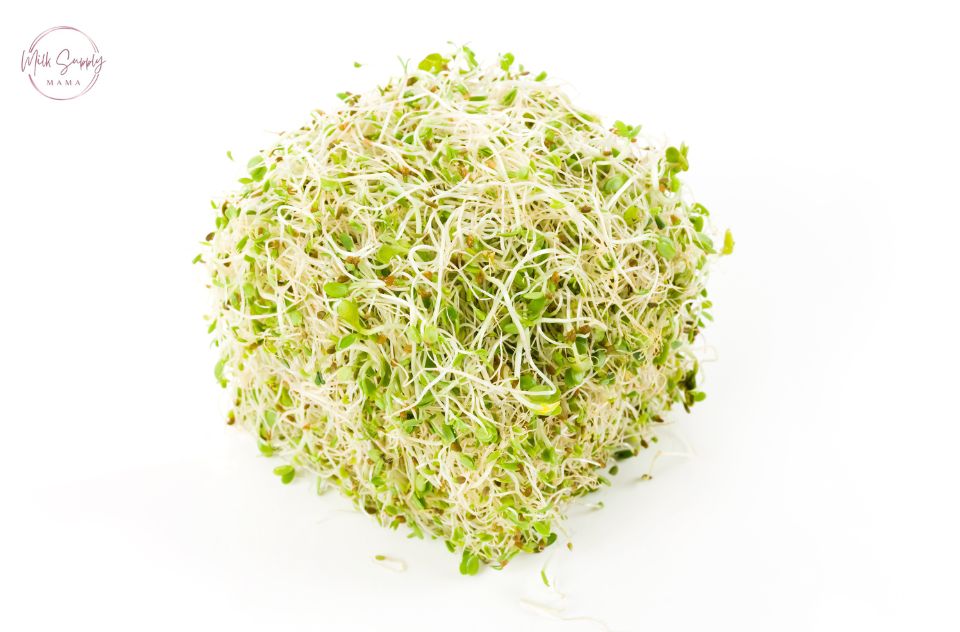Shatavari: An Ayurvedic Galactagogue to Increase Milk Supply
While trying to navigate the world of herbs for lactation, you may have come across a new herb to the Western world, known as Shatavari. One of the most used and recommended herbs for breastfeeding is Shatavari, also known as Asparagus racemosus. In this article, we’ll look at the benefits of Shatavari for breastfeeding, how it works, and other similar herbs that can be used to increase breastmilk production.
Article Overview
What is Shatavari and How Does it Help with Lactation?
Shatavari is a perennial shrub that is native to India, Africa and parts of Asia. It has been used in traditional Indian medicine for centuries due to its believed health benefits. It is a powerful adaptogenic herb that helps to balance hormones in the body, and support overall health and wellbeing.
Shatavari is commonly used in Ayurvedic medicine to improve lactation and increase the production of breast milk. This herb has been used for centuries to help improve the quality and quantity of breast milk, as well as to enhance the overall health of nursing mothers themselves.
The active compounds in shatavari, including phytoestrogens and saponins, are thought to be responsible for its lactogenic properties. These compounds work to stimulate the production of prolactin, a hormone that is essential for breast milk production. Shatavari is also believed to have a supportive effect on the mammary glands, helping to promote the growth of healthy mammary tissue.
In addition to its lactogenic effects, shatavari has been shown to have several health benefits for nursing mothers. For example, it may help to improve digestion, boost the immune system, and reduce stress levels. This herb is also thought to have a nourishing effect on the female reproductive system, helping to balance hormones and promote overall reproductive health.
Dosage and Administration of Shatavari for Milk Supply
When it comes to taking shatavari for breastfeeding, it is important to follow the dosage instructions provided by your healthcare professional. Generally, it is recommended to take one capsule or one teaspoon of shatavari powder twice daily. Typical dose for capsules is 1 to 2 500 mg capsules, 2 times per day. It is important to note that shatavari is best absorbed when taken with food, so it is recommended to take it with meals.
Shatavari To Increase Milk Supply – Is It Right For Your Lactation Journey?
Shatavari is a powerful adaptogenic herb that has been used in traditional Ayurvedic medicine for centuries. It is believed to help to balance hormones in the body and increase breastmilk production in breastfeeding mothers.
It is important to note that while shatavari has been traditionally used for increasing breast milk production, there is limited scientific evidence to support its efficacy. It is always recommended to speak with a healthcare professional before taking any new supplement, especially during pregnancy or breastfeeding.
Popular Traditional Herbs To Help Increase Milk Supply
There are many traditional herbs in various cultures that have been used to increase milk supply in new moms. Common traditional herbs include fenugreek, moringa, fennel, and blessed thistle. While the scientific evidence on their effectiveness is limited, these herbs have been used for centuries as galactagogues, or substances that promote lactation. Here’s a closer look at the anecdotal benefits of each herb:
Fenugreek: Fenugreek seeds are rich in compounds that can stimulate milk production. They contain phytoestrogens, which mimic the hormone estrogen and can lead to an increase in milk supply. Fenugreek is also thought to stimulate the milk ducts and glands.
Moringa: Moringa is a nutrient-dense herb that is rich in vitamins and minerals such as iron, calcium, and vitamin C. It’s believed that these nutrients can help to increase milk supply. Moringa also contains phytoestrogens, which can stimulate milk production.
Fennel: Fennel seeds have been used for centuries as a galactagogue. They contain anethole, a compound that can stimulate milk production. Fennel is also believed to have a calming effect on babies, which can improve the let-down reflex.
Blessed Thistle: Blessed thistle is a bitter herb that is believed to stimulate milk production. It’s thought to work by increasing prolactin levels in the body. Blessed thistle is also believed to have a calming effect on the body.
It’s important to note that while these herbs are generally considered safe, there are some potential side effects to be aware of. As with any herbal remedy, it’s important to speak with a healthcare provider before using these herbs while breastfeeding.
Shatavari and Breast Milk: Further Reading
Here are three reputable articles related to Shatavari and its role as a galactagogue to increase milk supply:
- Healthline – What Is Shatavari and How Is It Used?
- WebMD – Are There Health Benefits of Shatavari Powder?
- International Journal of Ayurveda and Pharma Research – An Overview of Shatavari (Asparagus Racemosus) An Ayurvedic Drug









